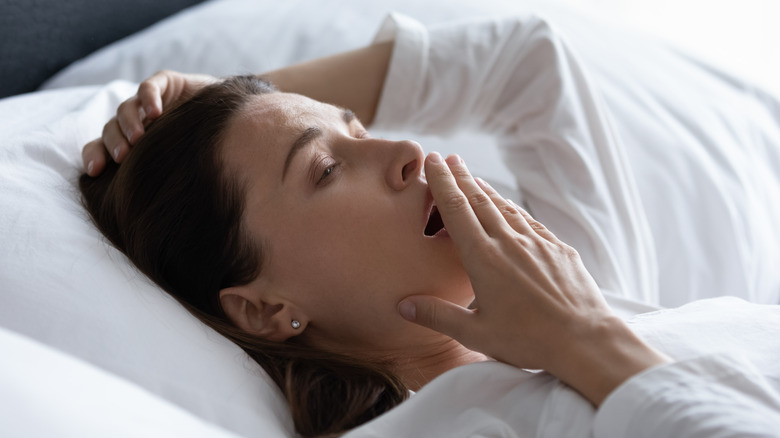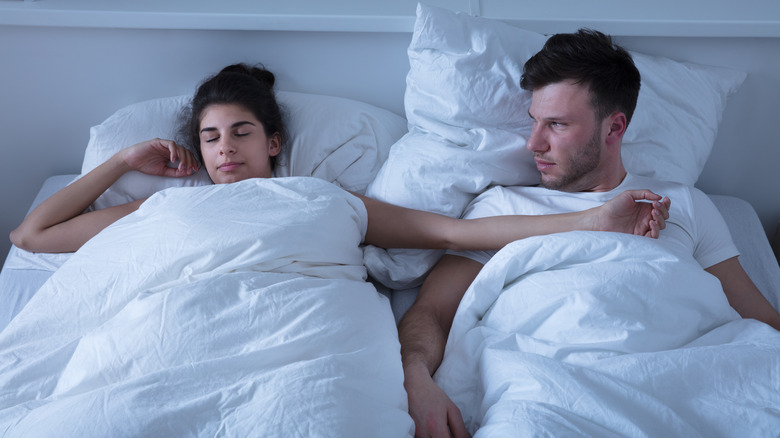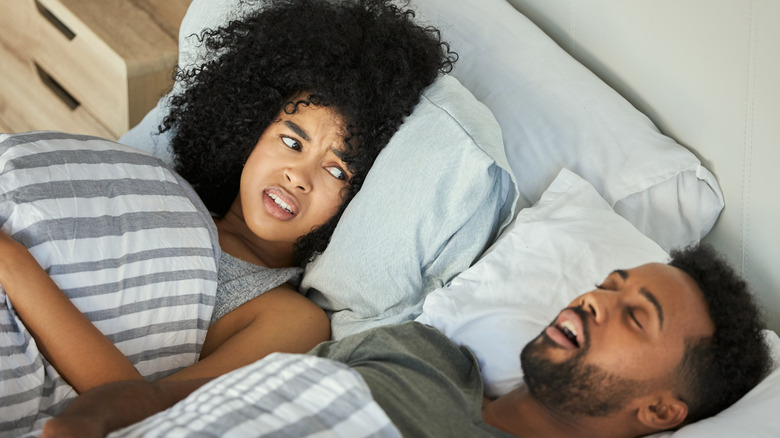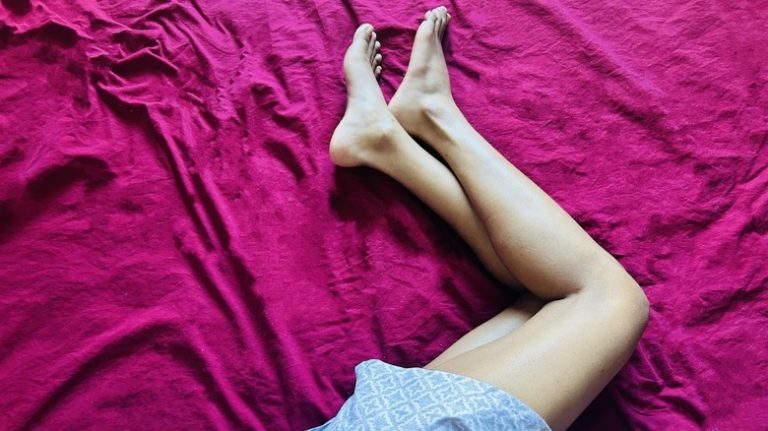You stub your toe, miss the bus, or misplace your car keys; and, in a moment of frustration, you find yourself cursing under your breath. While we may have more conscious control over whether or not we curse during waking hours, can the same be said for swear words that slip out in our sleep? According to a 2024 research article published in the scientific journal Sleep, approximately 67% of adults have experienced sleep talking — medically referred to as “somniloquy” — at some point during their lives. A little over 6% of adults sleep talk on a weekly basis.
Most of what comes out of our mouths during sleep is short and sweet rather than lengthy expressions. However, there are exceptions to the rule. Psychologist and dream researcher Deirdre Barrett told Discover Magazine that in non-REM sleep phases, mumbling, short phrases, or full sentences are not uncommon to hear from a person sleep-talking. During REM sleep, however, Barrett notes that she’s heard patients joke, laugh, sing, have two-sided discussions, and go off on extended narrations. While swearing tends to occur during non-REM sleep, more aggressive language has been observed in REM sleep.
Which swear words do people say the most in their sleep?

In the 2024 article, researchers analyzed over 200 French-speaking adults who experienced sleep talking on a regular basis. Some participants had additional sleep disorders including REM sleep behavior disorder (RBD), sleepwalking, or night terrors. The researchers conducted patient interviews and used video and sound recordings to track patient sleep. The study team made note of any verbalizations made while sleeping, including whispering, mumbling, crying, whistling, and yelling, as well as non-verbal lip movements.
In analyzing which words were most commonly uttered by sleeping patients, the researchers also looked at the use of profanity during sleep. While cursing was detected during both REM and non-REM sleep phases, it was more common during non-REM sleep and more often seen in men than women. There were also differences in the types of swear words used during the two sleep stages. “F***” and “s***” came up predominantly during non-REM sleep; but louder, more nasty words were more common during REM sleep.
What is REM sleep behavior disorder (RSBD)?

As previously mentioned, some patients in the study were diagnosed with alternate sleep disorders, including REM sleep behavior disorder (RSBD). RSBD is a type of parasomnia, explains the Cleveland Clinic. Parasomnias are sleeping conditions in which a person engages in abnormal behaviors during sleep. Such behaviors can include walking around, crying, or eating. In cases of RSBD, individuals are physically or verbally engaged with a bad dream they’re having. They may yell, talk, punch, or swear in their sleep, sometimes in a more hostile manner. For some people, the reason they’re swearing in their sleep may be due to this type of parasomnia.
A sleeping condition isn’t always the reason why a person might swear in their sleep, however. Alternatively, Barrett told Discover Magazine that talking during non-REM sleep may be the result of language areas of the brain temporarily waking up during the course of the night. “The person wouldn’t show a full waking EEG, but they’d show little areas of the brain or moments [in time] that look somewhat awake rather than like normal non-REM sleep,” she explained.







